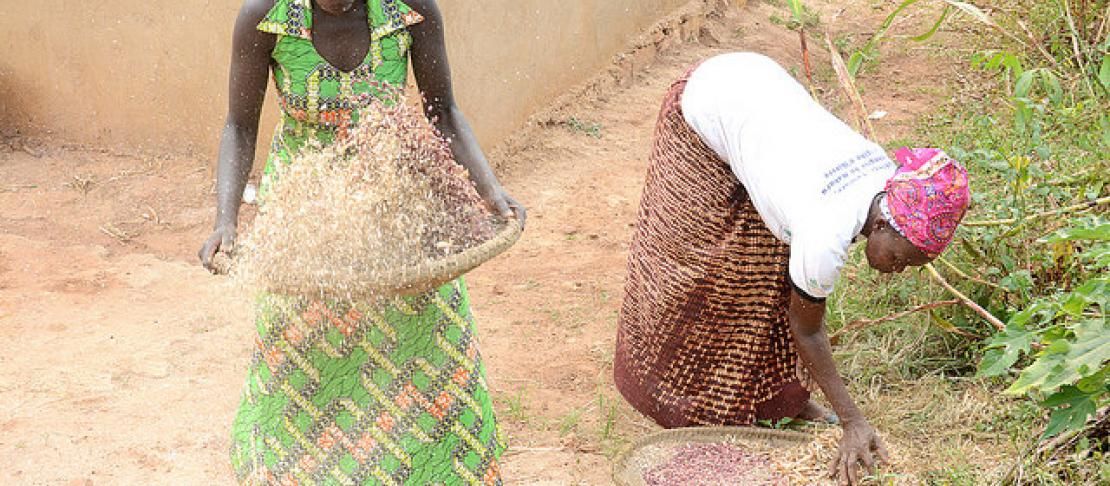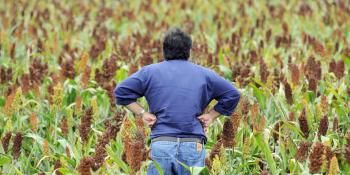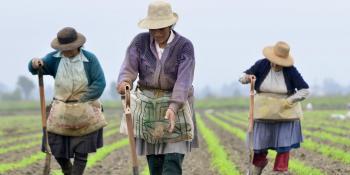Moving to implementation: Africa’s approach to the Koronivia Joint Work on Agriculture roadmap

For the first time, ahead of COP24, the team of negotiators and scientists met in West Africa to prepare a submission on agriculture.
While the combination of climatic and non-climatic drivers and stressors will exacerbate the vulnerability of Africa’s agricultural systems to climate change, the impacts will differ by farming system, thus requiring context-specific adaptation actions.
At COP23 in November 2017, Parties adopted the Koronivia Joint Work on Agriculture (KJWA) that opened the door to bold, transformative action to make farmers’ livelihoods and food supply more resilient, while mitigating climate change.
A key feature of the decision is that while so far negotiations have remained in SBSTA, the technical body of the UNFCCC,* the Conference of the Parties (COP), which is the supreme decision-making body of the UNFCCC, asked SBSTA and SBI to jointly address issues related to agriculture through the KJWA. SBSTA and SBI work together on cross-cutting issues that touch on both their areas of expertise. These include the vulnerability of developing countries to climate change and response measures.
Part of the KJWA is a roadmap adopted in May 2018 at SBSTA that sets out the activities which will be undertaken by the joint SBs for 2018-2020. The activities are designed to address both scientific and technological aspects as well as implementation.
Based on the KJWA roadmap, Parties were invited to make submissions on the first topic prior to COP24 – “Modalities for implementation of the outcomes of the five in-session workshops on issues related to agriculture and other future topics that may arise from this work.” An in-session workshop on the topic will be held at the SB's 49th session in December 2018 in Katowice, Poland.
In order to prepare the submission for COP24, the team of negotiators and scientists met in Senegal between 26 and 28 September. The meeting was organized by the African Group of Negotiators (AGN) Agriculture and Gender Negotiators and experts, in collaboration with the Ministry of Environment and Sustainable Development of Senegal, with support from the NEPAD Agency of the Africa Union, International Development Research Centre (IDRC), the CGIAR Research Program on Climate Change, Agriculture and Food Security (CCAFS), the World Bank and the Food and Agriculture Organization of the United Nations (FAO).
The pre-COP24 Capacity Building and Strategy Meeting—conducted in both English and French—brought together 65 participants from Benin, Burundi, Botswana, Egypt, Ethiopia, Ghana, Sudan, Tanzania, Kenya, Nigeria, Mali, Mozambique, Zimbabwe, Zambia, and South Africa.
The meeting started with a training session for agriculture and gender negotiators and experts from the Africa Group of Negotiators (AGN). They were trained on negotiation skills, gender mainstreaming and the UNFCCC processes. The training session enabled new negotiators and the experts to understand the UNFCCC negotiation process and requirements, especially how to prepare the submissions to the UNFCCC.
During the discussions, it was emphasized that the implementation of the KJWA needs to take a sub-regional and national approach that takes into account crops, livestock and fisheries from a context-specific view. The following are the recommendations made by the AGN regarding the modalities of the outcomes of the five in session workshops on issues related to agriculture and other future topics that may arise:
- Climate finance: the UNFCCC needs to set aside funds to support the implementation of agriculture activities.
- Increased international cooperation and partnerships for capacity building, technology development and transfer are needed.
- Tracking progress: support is needed in the development of indicators which can be used to track adaptation and mitigation efforts in Africa.
- There is a need for vulnerability assessments, development of early warning systems contingency plans and safety nets that are gender-responsive.
- Linkages need to be established with the Food and Agricultural Organization of the United Nations (FAO), the International Fund for Agricultural Development (IFAD), and the World Bank to create a platform that will enable efforts from these organizations to feed directly into UNFCCC processes.
It's a wrap:Participants from #Africa have successfully crafted a common African position on issues related to #Agriculture #GenderAndClimate4Africa for #COP24 @cgiarclimate_EA @cgiarclimate_WA @CCAFS_GSI @IccasaA @Daljuz @SmartG_A @AfDB_Group @NEPAD_Agency @TabiJoda1 @deeklack pic.twitter.com/ZihMcflEfq
— Catherine Mungai (@catmungai) September 28, 2018
We are looking forward to engaging with negotiators at the upcoming UNFCCC meetings (COP24 and SB49) in Katowice, Poland, to ensure agriculture gets higher in the UNFCCC agenda.
Read more:
- Blog: After slow progress on climate action for agriculture in Bonn, what's needed?
- Blog: Developing the African narrative for the Koronivia Joint Work on Agriculture: setting the stage for climate-resilient agriculture in Africa
- UNFCCC decision: Koronivia Joint Work on Agriculture
- UNFCCC document: KJWA Roadmap
* UNFCCC is the United Nations Framework Convention on Climate Change. The UNFCCC secretariat organizes and supports between two and four negotiating sessions each year. The largest and most important is the Conference of the Parties (COP), held annually and hosted in different locations around the globe.
SBSTA and SBI are the two permanent subsidiary bodies to the Convention:
- SBSTA is the Subsidiary Body for Scientific and Technological Advice. It supports the work of the COP through the provision of timely information and advice on scientific and technological matters as they relate to the Convention, its Kyoto Protocol and the Paris Agreement.
- SBI is the Subsidiary Body for Implementation. The agenda of the SBI is shaped around the key building blocks of the implementation of the Convention, the Kyoto Protocol and the Paris Agreement: transparency, mitigation, adaptation, technology, capacity-building and financing.
The SBSTA and SBI work together on cross-cutting technical and implementation issues that touch on both their areas of expertise.
Catherine Mungai is the Partnerships and Policy Specialist at CCAFS East Africa. Maren Radeny is the Science Officer at CCAFS East Africa. Sam Partey is the Science Officer at CCAFS West Africa.



